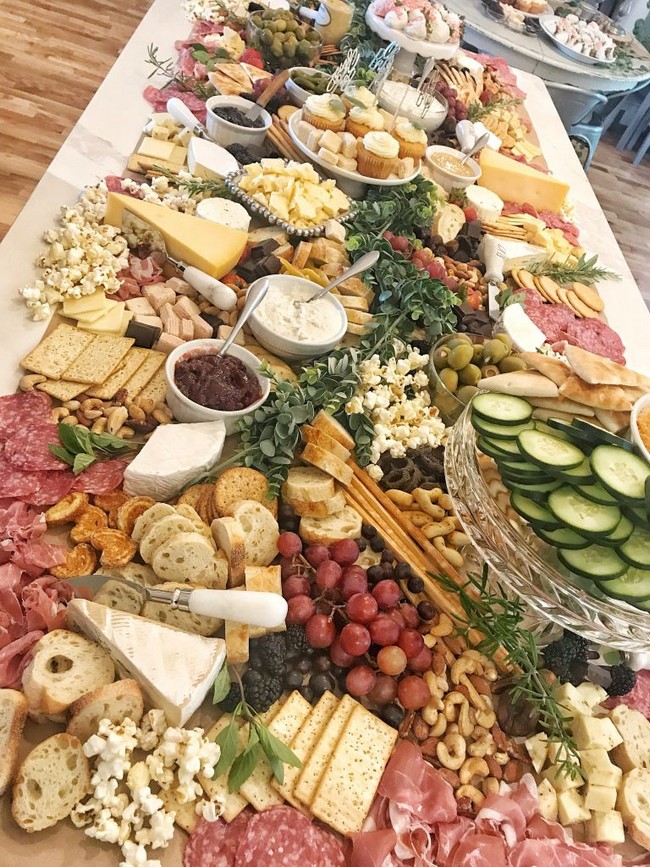Heathener Than Thou: Eat Ancestrally
Today in “Heathener Than Thou”, let’s look at the practice some heathens insist one must do if one is a “real” heathen: eat Ancestrally, aka, only eat what a Viking Era Scandinavian would have eaten.
Setting aside that “ancestrally”, while technically correct, grates on the ears, let’s look at “eat as your ancestors did”.
I’m not going to use my own family as an example. My ancestors are not particularly good role models in terms of healthful habits—moderation was something that happened to other people. If I insisted on dining as they did, I’d be carrying even more weight than I already do, and spend a small fortune on food.
There’s also that whole cooking thing—unlike my forebears, I do not have full time kitchen staff whose sole function is to create dishes to please my palate. Left to my own devices, I find turning on the oven to make some toasted cheese bread is about as much effort as I care to make most days. If I’m feeling really ambitious, I’ll do roast chicken and potatoes (cover bottom of baking dish with chunks of potatoes, slather with butter, garlic, rosemary, and oregano; add chicken pieces on top of potatoes, slather with butter, garlic, rosemary, and sage; bake one hour at 400 degrees Fahrenheit, basting every 20 minutes), and have real food to eat for a few days. But I really can’t be bothered to cook on a regular basis, so if my spouse doesn’t feel like cooking, then breakfast cereal also serves as an acceptable evening meal. If one of us is inclined, a can of soup is opened and heated, but PBJs are also an option. Or, if we are working late at the office, food delivery solves this problem (and I think my ancestors, with their myriad of servants, would approve of this).
Most people, however, aren’t quite so casual about their eating habits, and aren’t descended from people who couldn’t make scrambled eggs if their lives depended on it. If your ancestors are from an area which experienced famine (hello, 13th century Japan, 16th century Ethiopia, 17th century Russia, among others), or were too poor to eat well, or lived in an area where food was not particularly abundant (vegetables were not a big part of the Icelandic diet in the Viking Era), eating as your ancestors did is a key to malnutrition—not to mention a limited and repetitive diet.
You don’t have to use a great deal of imagination to figure out what those hungry ancestors would say to the notion that we must eat like them in order to share their spiritual heritage. Take any tenth century Icelander and turn them loose in a modern grocery store, even a moderately sized one—filled with piles of produce, fresh meats, fowl, and fish of all varieties, more bread than a village could eat in a week—and they would not to judge you for eating any of these things. They would be amazed at the abundance and variety of food, and encourage you to eat what makes you happy.
If you enjoy cooking and want to experiment with recipes from other times and places, do so, and enjoy! I took a Medieval Cookery course in college; it was great fun, and also the most delicious credit hour on my transcript. A few years ago, I ventured into making some Viking Bread based on a historical recipe (I’m not much for cooking, but I do enjoy baking). It was fun, and more than edible, and I’m glad I did it. Would I make it the only bread I eat? Not in a world where focaccia exists!
While family recipes and cultural mainstays can be quite good for us, both in terms of physical and emotional nutrition, limiting ourselves to just one type of food or one particular era is not going to do much for us. If you want to explore food as a means of connection to your ancestors, there are resources aplenty in books and on the internet to help you locate recipes and suggestions. But no, you do not have to eat only what your ancestors (physical, spiritual, or otherwise) ate in order to walk your spiritual path.


Leave a Reply